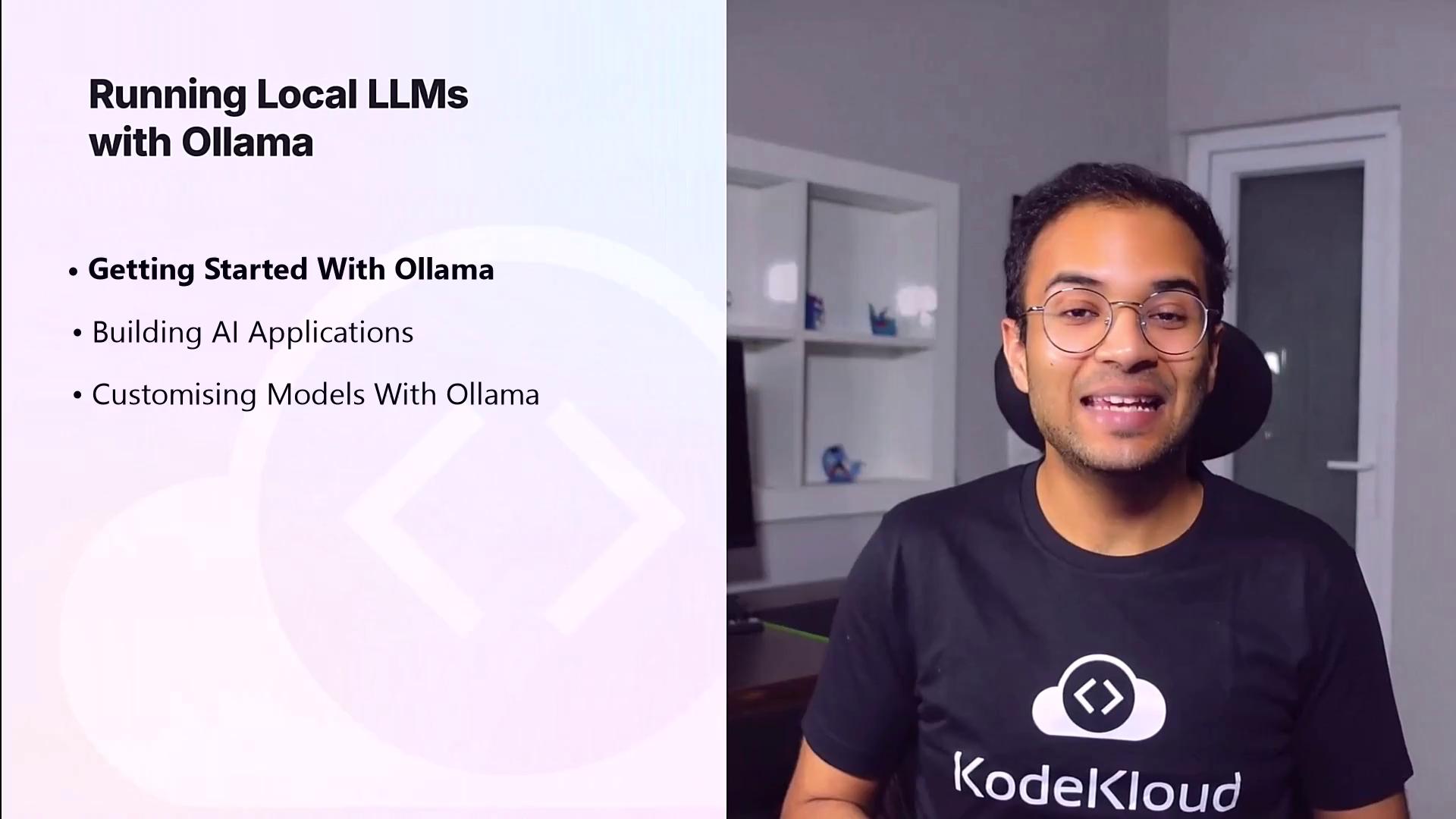Running Local LLMs With Ollama
Introduction
Course Introduction
Generative AI is revolutionizing industries, and at the heart of this transformation are powerful large language models—whether it’s ChatGPT, Claude, or the next breakthrough. But what if you could run and manage these models on your own hardware? That’s where Ollama comes in.
Ollama provides a seamless, end-to-end interface for running, experimenting, and fine-tuning LLMs locally. Developers, data scientists, and AI enthusiasts can integrate these models into custom applications without relying on external APIs.
Welcome to Running Local LLMs with Ollama. I’m Arsh Sharma, and in this course you’ll progress from the fundamentals of local LLM deployment to building real-world AI applications and customizing your own models for peak performance.
Let’s take a look at what’s ahead:

| Section | Topics Covered |
|---|---|
| 1. Getting Started with Ollama | Installation, CLI basics, first inference, model catalog, community tools for ChatGPT-style UI |
| 2. Building AI Applications | Ollama REST API integration, development patterns, interoperability with OpenAI API |
| 3. Customizing Models with Ollama | Modelfile configuration, parameter tuning, context window settings, registry upload and management |
1. Getting Started with Ollama
In this module, you will:
- Understand the key benefits of running LLMs locally
- Install Ollama on macOS, Linux, or Windows Subsystem for Linux
- Launch your first model inference via the CLI
- Explore essential commands to list, pull, and inspect models
- Leverage community-driven templates to spin up a ChatGPT-style front end
Prerequisites
Ensure you have at least 8 GB of RAM, 20 GB of free disk space, and a modern x86_64 or ARM64 processor. Familiarity with the command line is recommended.
2. Building AI Applications
Once Ollama is up and running, you’ll learn how to integrate it into your applications:
- Explore key API endpoints for model metadata and text generation
- Integrate with popular languages and frameworks (Node.js, Python, Go)
- Compare Ollama’s request/response patterns with the OpenAI API
- Complete hands-on exercises to build a simple chat interface
3. Customizing Models with Ollama
Tailor your language models to specific tasks by adjusting parameters and training data:
- Define custom settings in a Modelfile
- Tune performance options like temperature and context length
- Use your own dataset to fine-tune or prompt-tune models
- Manage model versions in the Ollama registry for team collaboration
Links and References
Let’s dive in and unlock the full potential of AI with Ollama!
Watch Video
Watch video content